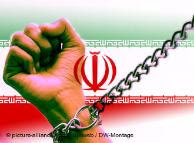
The police were called out to deal with the crowds in several cities, and Tehran’s main cemetery was closed Sunday after mourners — mostly young people — assembled there in such large numbers that the singer’s burial had to be postponed.
The 30-year-old singer, Morteza Pashaei, who died on Friday of stomach cancer, was a popular figure among young Iranians, but many of his songs were not allowed to be played on state television because the authorities considered them to be too romantic.
Mr. Pashaei was well known, particularly for his song “Negarane Mani,” or “You Are Worried About Me.” He was allowed to stage his first concert in 2013, when he was already suffering from cancer.
After his death was announced on Friday, thousands of people gathered in front of the hospital in Tehran where he died. Similar gatherings of fans were reported across the country over the weekend as the news of his death spread on social media sites. The police tried to disperse crowds in Tehran and the northeastern city of Mashhad, where several people were arrested, witnesses reported. The spontaneous crowds were among the largest in Iransince the mass protests over the disputed 2009 election.

On Sunday, police officers in riot gear closed the gates to Tehran’s sprawling Behesht-e Zahra cemetery after thousands of young people flooded the site, singing Mr. Pashaei’s songs, but also using the occasion as a rare opportunity to flirt and enjoy the excitement of a crowd. Iran’s security forces are generally vigilant to prevent large gatherings or demonstrations.
The huge and spontaneous outpouring of grief surprised the authorities. In October, officials had used all the propaganda tools at their disposal to call for public displays of mourning after the death of one of Iran’s leading clerics, Ayatollah Mohammad Reza Mahdavi Kani, but no crowds gathered.
“Mr. Pashaei is a pop singer and close to the hearts of young people,” said Mohammad Ali Abtahi, a reformist politician and a former vice president. Mr. Abtahi, a cleric who was imprisoned over accusations that he wasinvolved in the 2009 protests, said that there “were many other reasons” people had taken to the streets after the singer’s death, “but I cannot openly talk about those.”
On Sunday, some people said they had gathered at the cemetery to mourn but also because they were curious. “We came here to see what is happening,” said Hessam, who refused to give his family name. He was wearing a leather coat, jeans and sunglasses and strutting around among hundreds of other youths. “There must be over 120,000 people here,” he said. “I am sad he died but also excited that something is happening.”
Crowds at the cemetery were so large that Mr. Pashaei’s burial was unable to proceed, and the body had to be returned to the morgue. “We will bury him in secret, in a better organized ceremony,” Mr. Pashaei’s promoter, Mohammad Hossein Toutounchian, told the Iranian Students’ News Agency.
Mostafa Eghlima, a sociologist, said that the roots of the outpouring of grief could be traced to the harsh social restrictions faced by Iranians and enforced by a small group of hard-liners. Urbanization, the influx of oil money and access to social media are among the trends that have greatly changed Iranian society over the past 15 years. But faced with changes that challenge their control, the hard-liners have insisted on more and stricter laws to rein in what they call “Westernization.”
“Some extremist groups insist on restricting people’s privacy, therefore happiness in our society is very limited,” Mr. Eghlima told the Aftab news website. “Holding such gatherings is not merely for commemorating the death of a singer; it shows the need for togetherness, the need to have some leisure together.”
After initially ignoring the response to Mr. Pashaei’s death, the official Iranian media on Sunday widely covered the start of the funeral, showing images of the coffin draped in the Iranian flag. Some websites stressed that the public commemorations were not protests and quoted Mr. Pashaei’s father as saying that the singer had “always loved the Islamic Republic” and had planned to go on a religious pilgrimage before his death.







هیچ نظری موجود نیست:
ارسال یک نظر